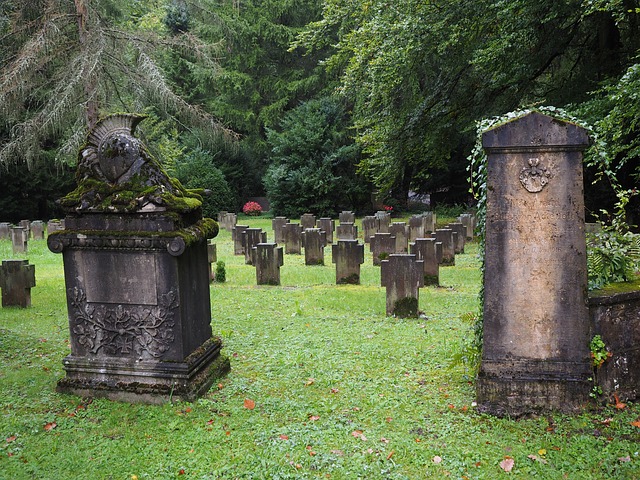2 “I know that you can do all things, and that no purpose of yours can be thwarted.”- Job 42:2
Job’s Perspective
If only we all had the same perspective of God that Job did after his confrontation with his Creator. Despite the creation account of Genesis and the “redemption” account of Exodus, followed by numerous other displays of the mighty power of God, His power is often questioned. When a natural catastrophe occurs, many assume that God, if He exists at all, was powerless to stop it. Certainly, we are told, He is no match for Mother Nature. When a loved one succumbs to a terrible disease, the same charges are leveled. If we see “innocent” young children suffering, God is accused of being either unloving or unable to intervene. Does the fact that God is all powerful obligate Him to exercise His power according to our desires?
God’s Power & Character
God is able to “do all things”, provided those “all things” are consistent with who He is. His power is tempered by His holiness, wisdom, perfect love, etc. In other words, the only limitation on the power of God is His perfect character. He can create the heavens and earth and fill them with men and beasts, stars and planets; but He cannot sin. He can mold the mountains, carve out the canyons, and set the boundaries for the oceans and seas; but He cannot change. Speaking light into darkness; no problem. Bringing vegetation out of the soil; no sweat. Breaking a promise; impossible. God can do all things that are in accordance with His will.
Man & Creation
It was the will of God to have fellowship with man. Accordingly, God spoke creation into existence in six days. The light and the vegetation and the gases in the atmosphere are all in accordance with the requirements for His apex of creation to thrive. The intricacy of the human body, the complexity of the eyes and brain, the marvel of the data in DNA, all reflect the wisdom of the Creator. And He started with dust (in Adam’s case). Amazing how He shapes such clay, only to have the clay question and doubt Him.
Seeing that it was not good for man to be alone, God created a helpmate out of a rib. When sin became rampant, God flooded the entire world. When He promised never to do so again, He put the rainbow in the sky. He confused the plans of tower builders, He destroyed wicked cities with fire and brimstone, and He opened old and barren wombs. He turned a sea to dry ground, brought water from a rock, and brought dry bones to life. This is just a sampling of the power of God, a power whose evidence speaks to us every day.
24 Thus says the Lord, your Redeemer,
who formed you from the womb:
“I am the Lord, who made all things,
who alone stretched out the heavens,
who spread out the earth by myself. – Isaiah 44:24
Mountain Peaks & Ocean Bottoms
Both the stars on a clear night and the clouds on an overcast day reveal the power of God. We look up and see either in the sky above and take them for granted, but a study of the composition of either would give us a new appreciation. Consider the size and heat of a star and try not to be impressed the next time you lift your eyes to heaven and see the sky filled with them. As the clouds drift over us blocking out the light of the sun stop and consider how God has taken water and suspended it in space only to tell it where to drop its rain. As God “spread out the earth by Himself”, He chose to give us majestic mountains and rolling hills. He gave us oceans of salt water and lakes and streams of fresh water. He made the mountain goats to ascend to the mountain peaks, and the lanternfish to plumb the depth of the sea. He adorned the mountains with edelweiss and the seas with a giant plumose anemone. The next time you stop to smell a rose, consider who gave it its beauty and fragrance.
A Newborn
As awe-inspiring as nature is, nothing compares with a newborn child in my book. The same God who suspends great burning balls of gases in space and floats masses of condensed water vapors in the atmosphere knits human life in the womb. What does He start with? One cell from dust and one from the rib of dust. God takes these two cells and makes a new creation. One bearing His image. As we hold a newborn baby and look into its eyes, we see a reflection of the incredible “power” of God. Don’t let the little fingers and toes deceive you. Despite its size, the child in our arms is not only special, it is extremely intricate. The stars and oceans may remind us of the majesty of their Creator, but only the offspring of Adam and Eve, formed in the womb, can bear His image, and house His Spirit. In fact, God Himself, became a newborn, to show us His greatest power.
Man & Recreation
16 For I am not ashamed of the gospel, for it is the power of God for salvation to everyone who believes. -Romans 1:16
I don’t understand all of the details of stars or clouds. I have not had the vantage point of the mountain goat or lanternfish. The human body is too complex for my comprehension. But I have experienced the power of God for salvation, and someday will experience His resurrection power. Not because of my intelligence, understanding or comprehension, but because of my belief. I believe I am a sinner in need of a Savior. I believe that Christ, as the second person of the Trinity, became a baby in a manger. I believe that Jesus lived a perfect life; fulfilling the Law. Further, I believe He died for my sins on the cross and three days later rose from the dead according to Scriptures. In short, I believe the Gospel; the power of God for salvation.
3 For I delivered to you as of first importance what I also received: that Christ died for our sins in accordance with the Scriptures, 4 that he was buried, that he was raised on the third day in accordance with the Scriptures. – 1 Corinthians 14:3-4
Abundant in Power
God used a star to lead the wise men to the Christ child. He used the clouds to hide the sun when Christ hung on the cross. He used an earthquake to release the saints from their tombs and to accompany an angel to roll away the stone. God’s power is in accordance with His will. His will is that all might be saved (1 Timothy 2:4). God’s power is still being displayed on a daily basis. God may not stop every catastrophe or every “premature” death according to our wishes, but He does offer hope for our greatest need. And only He has the power to secure it. Instead of questioning the power of God, why don’t you put your faith in it and experience it for yourself? The cross and the empty tomb beckon you.
Behold, the Lord’s hand is not shortened, that it cannot save. – Isaiah 59;1
Great is our Lord, and abundant in power;
his understanding is beyond measure. – Psalm 147:5
24 Now to him who is able to keep you from stumbling and to present you blameless before the presence of his glory with great joy, 25 to the only God, our Savior, through Jesus Christ our Lord, be glory, majesty, dominion, and authority, before all time and now and forever. Amen. – Jude verses 24 & 25






